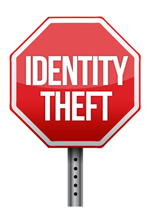Regularly checking your credit report is one of the essential tasks you should be doing to help prevent becoming a victim of identity theft.
There are three main credit reporting agencies and you are allowed to get one free credit report from each of them every 12 months. So if you plan a little bit, you can get one every four months which will allow you to regularly monitor your credit accounts.
These reports will contain details about your addresses, employers, mortgage loans, student loans, credit card debts, other credit accounts, bankruptcies and more.
You want to carefully go through each item listed on your report. You are looking for two things. First, you want to make sure that you recognize each of the company names that is listed on it, and second, that you agree with the numbers associated with that company name.
When you first look at this report, you’ll recognize most of the company names, but you’ll also see some that you don’t immediately recognize. It’s common to see some entries that you won’t recognize at first, but with a little thought, you will remember who they are.
Companies often have various corporate names and often report to the credit agencies using a different name than what you know them as. Loans can also be sold to third parties. So don’t panic if you see one or two you don’t immediately recognize.
Every credit card or store card in your wallet (and maybe your spouse’s wallet too) will have a listing on your report. Try to match them up.
If there are still one or two items you don’t think belong to you, check with your spouse and any other adult family members. They may either know something you don’t or they will remember something you haven’t.
The majority of initially unknown line items can usually be explained or recognized eventually. Give yourself a day or two to think about it or research the company name and you may realize that you do remember this relationship after all.
What you do not want to see on your report are accounts that you know you didn’t open, debts that aren’t yours, employers that you never worked for, or any other record that is obviously incorrect.
Most individuals have credit reports that aren’t perfect, but they are free of major errors and they don’t include any potential identity issues.


